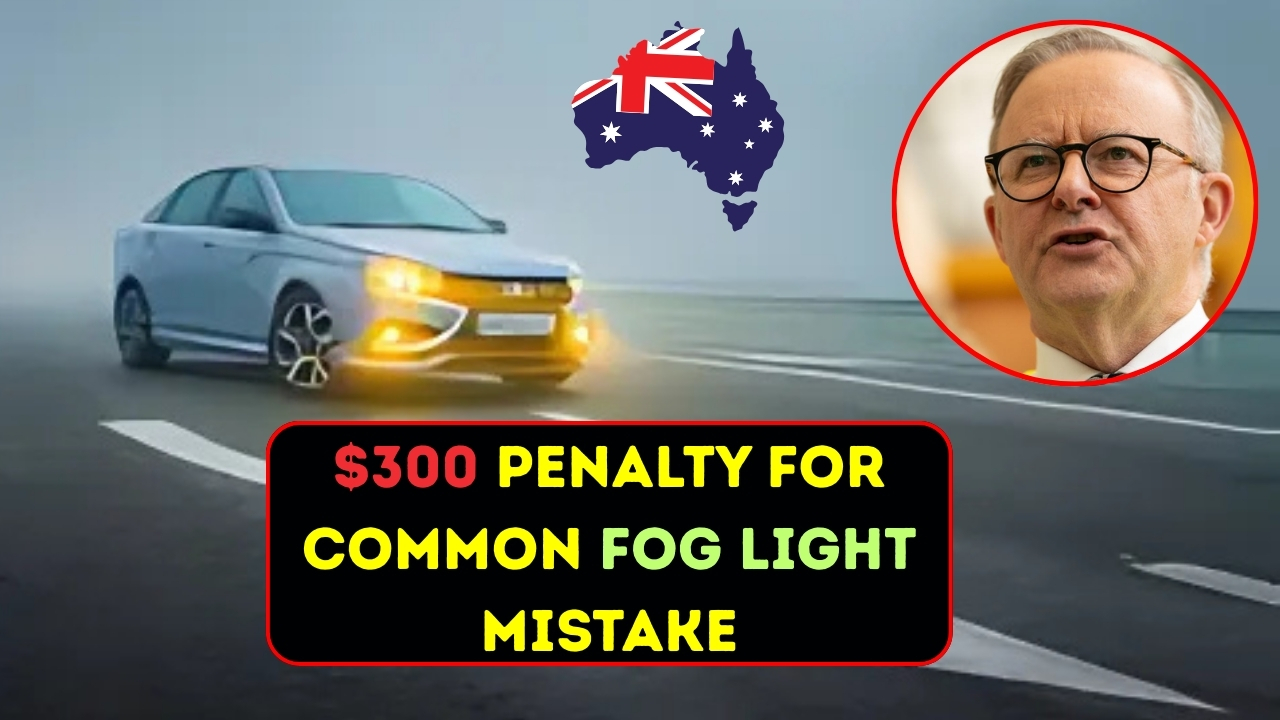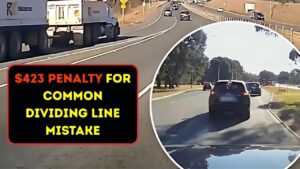Motorists in Australia have recently been warned of a common habitual practice that could easily cost these individuals a fine of up to $300, based on the renewed traffic laws stemming from 2025. Driving safety has been brought to the attention of road safety authorities due to the improper use of fog lights, front and rear, which has been largely seen as a major cause of the numerous roadside accidents that have been recorded.
Why fog lights matter
Fog lights are designed with the purpose of increasing visibilty of the road ahead during very dense fog, as well as during very heavy rain and dust storms. They are supposed to be positioned lower than the usual head lights, so as to be able to ‘cut through’ the fog and not dazzle the other road users.
Fog Light Rule Update 2025
| Aspect | Details |
|---|---|
| Year of Update | 2025 |
| Rule Applies In | Several Australian states (varies by jurisdiction) |
| Penalty Amount | $300 fine |
| Additional Penalty | Loss of ability to gain demerit points in other states |
| Correct Usage | Fog lights must only be used when visibility is extremely low and conditions are severe |
| Incorrect Usage | Using fog lights under normal/clear weather conditions |
| Authority Guidance | Fog lights should be reserved for periods of very poor visibility (e.g., thick fog, heavy mist) |
Police crackdown in multiple states
The police in the states have observed a rise in the use of fog lights during optimum weather that is extremely damaging, which is more so common with drivers who are new, as well as those living in suburbs. Since the start of the year, officers in NSW and Victoria have included the issuance of fines as part of the targeted operations in road safety. The police say the message is simple. Fog lights should not be used unless there is thick fog, smoke, or heavy rain, and even then, they must be turned off as soon as visibility improves.
Driver Confusion
Many drivers, even after the issuance of fines, have not fully grasped the correct application of fog lights. In response to this, road safety advocates have reinforced the need to educate the public on the differences of fog lights, headlights, and daytime running lights. It is also the case that motorists need to refer to the car manuals to guide them on the switch that operates which lighting, as some older car models possess rather perplexing systems.
Organisations that focus on road safety
It is not simply the NRSPP that focuses on road safety, as other road safety bodies also recognize that the focus is not on making money, but on preventing collisions that could have been avoided. Using safety statistics, they have shown that glaring lights, particularly on the highway and nighttime, pose a serious risk. It is their argument that the $300 fine is slapping them with less revenue, and more enforcing safer habits.
A note for all motorists
There is a note for the motorists. More advanced technology in vehicles does not mean the responsibility gets nullified when features of vehicle operation are used incorrectly. Neglecting proper fog light use carries the risk of incurring a financial penalty, in addition to causing potential harm to other individuals. Drivers are inclined to use certain lights at certain times, and safety should always come before style.



